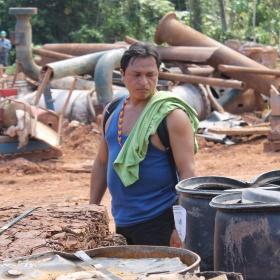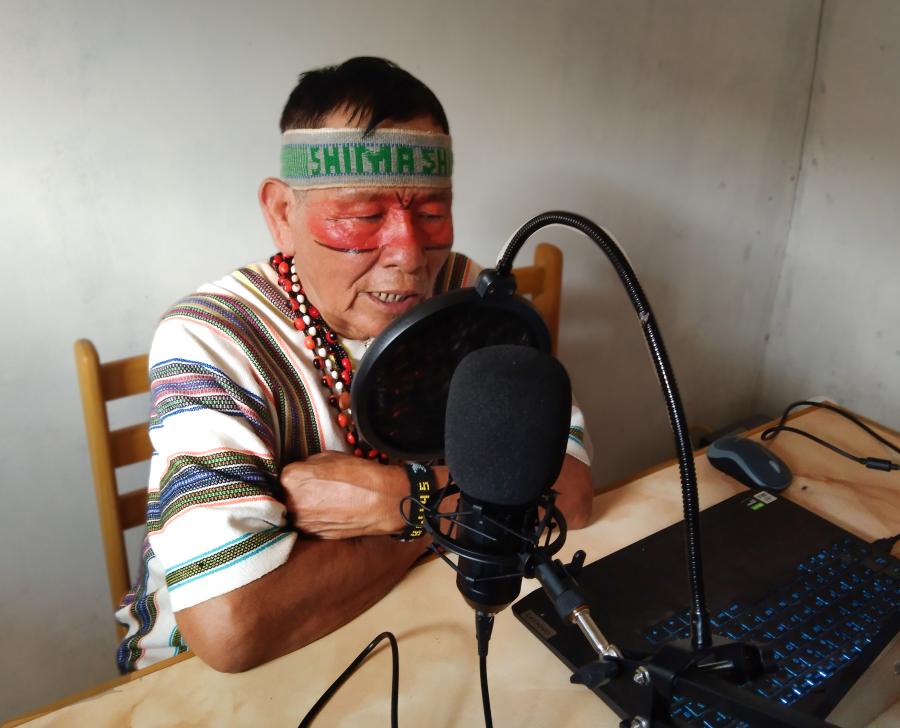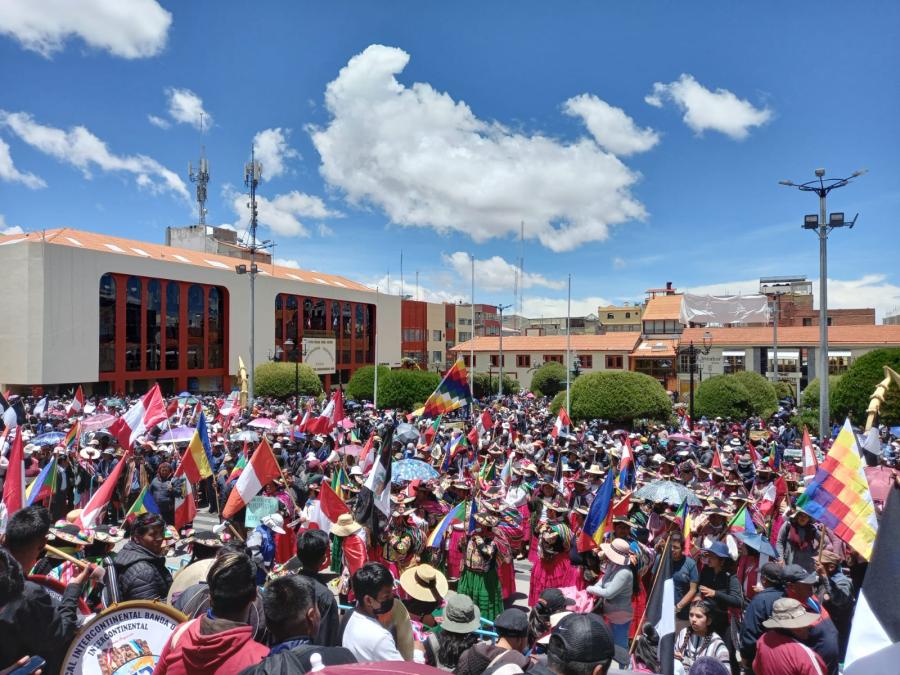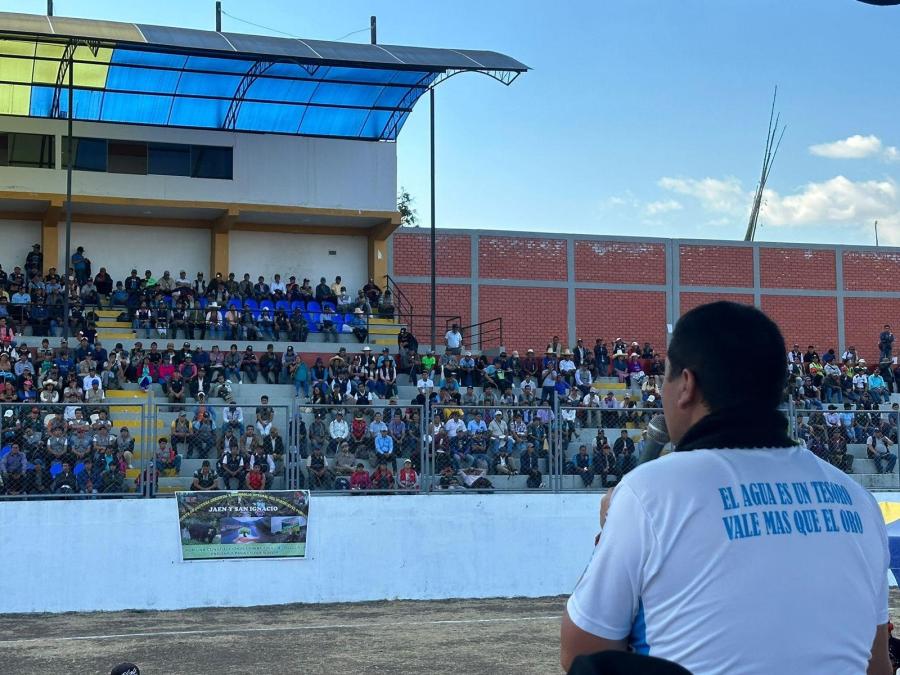
On March 26, 2014, the Quechua Federation of the Upper Pastaza River Basin (FEDIQUEP) declared a permanent strike until the Peruvian government shows signs of progress toward meeting the Federation’s conditions regarding compensation for oil contamination in its territory. Meetings among the communities, the oil company, Pluspetrol, and the government are slated for the end of April.
Achuar, Quechua, and Kukuma communities in the Pastaza, Tigre, Corrientes, and Marañon basins in the Department of Loreto, Peru, have suffered over 40 years of oil exploitation on Lot 1AB, Peru’s most productive oil concession. Now, as the concession’s 2015 expiration date approaches, the communities demand that the Peruvian government comply with Peru’s Prior Consultation Law and with international law that similarly requires governments to consult with communities before engaging in projects that affect their lands and territories.
Fed up with years of contamination that has poisoned their water and sickened their families and the plants and animals they depend upon, the communities refuse to engage in this consultation process until certain conditions are met. As local leader Apu David Chino aptly puts it, “How can I let someone in my house when they’ve caused destruction in my house?” The Federation requires that environmental remediation must take place; the communities must receive official title to their land; there must be greater government involvement in there region, including social and environmental impact assessments; the communities must be compensated for destruction caused by 40 years of oil exploitation; and the communities must be compensated for current and future use of their land. Upon compliance with these conditions, the Federation would be prepared to engage in a good faith consultation process.
In spite of an Environmental State of Emergency being declared in 2013, cleanup has been negligible in the region. Rather, the oil company “disappears” sites of contamination by covering them with water or fresh soil from other sites, effectively masking evidence of oil spills and thwarting opportunities for legitimate cleanup.
The Federation’s staunch demand that its conditions be met before they will engage in a consultation process is well known. The Minister of Energy and Mines, Eleodoro Mayorga, confirmed that if the consultation process is not undertaken by the date in August 2015 when Pluspetrol’s concession expires, “the day after their term expires, Lot 1AB will stop producing and the government will not be able to grant it to any other company, much less Petroperú [the Peruvian state oil company]. This would leave us an extremely costly vacuum.” The lot produces over 15,000 barrels daily, comprising over 60 percent of Loreto’s revenue.
In an attempt to avoid a complete shutdown of the lot, a Round Table has been established to facilitate negotiation among the parties. Mayorga claims that “the will to engage in dialogue, to serve the Indigenous Peoples, and to fulfill our responsibility to bring them the benefits of development, is evident.” Upcoming meetings at the end of April will show whether the will to engage with the communities on their terms is present.
Learn more about our Peru: Force Oil Company to Clean Up Spills campaign here.
Sources:
Tom Bewick of Rainforest Foundation New York
http://www.rpp.com.pe/2014-04-08-mayorga-lote-1ab-dejara-de-operar-si-n…



